
Balanus is a genus of barnacles in the family Balanidae of the subphylum Crustacea.
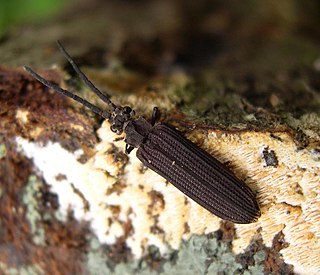
The Archostemata are the smallest suborder of beetles, consisting 45 living species in five families. They are an ancient lineage with a number of primitive characteristics. They are similar in morphology to the first beetles, which appear in the fossil record about 250 million years ago. Antennae may be thread-shaped (filiform) or like a string of beads (moniliform). This suborder also contains the only beetles where both sexes are paedogenic, Micromalthus debilis.
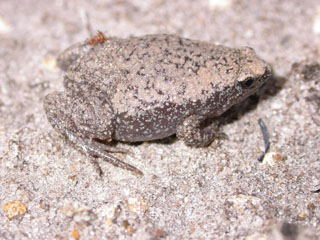
The Microhylidae, commonly known as narrow-mouthed frogs, are a geographically widespread family of frogs. The 683 species are in 63 genera and 11 subfamilies, which is the largest number of genera of any frog family.

Balea is a genus of small, very elongate, air-breathing land snails, sinistral terrestrial pulmonate gastropod mollusks in the family Clausiliidae, the door snails.

Phrynobatrachus is a genus of Sub-Saharan frogs that form the monogeneric family Phrynobatrachidae. Their common name is puddle frogs, dwarf puddle frogs, African puddle frogs, or African river frogs. The common name, puddle frog, refers to the fact that many species breed in temporary waterbodies such as puddles.

The shining flycatcher is a species of bird in the family Monarchidae. It is found in northern Australia, and from the Moluccas to the Bismarck Archipelago. Its natural habitats are subtropical or tropical moist lowland forest and subtropical or tropical mangrove forest.
Hercynella is a genus of fossil bivalves of late Silurian or Early Devonian age, found in Europe, North America, western Asia, North Africa and Australia. The name was also invalidly applied to a genus of moths now known as Tulaya.
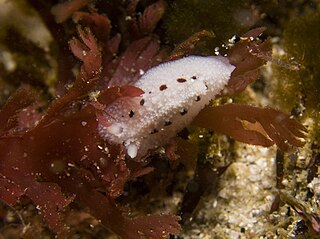
Atagema is a genus of sea slugs, specifically dorid nudibranchs. They are marine gastropod molluscs in the family Discodorididae.
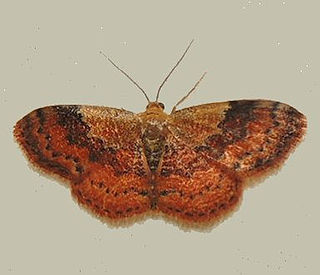
Leptostales is a genus of moths in the family Geometridae.

Neptunea is a genus of large sea snails, marine gastropod mollusks in the family Buccinidae, the true whelks.
Pseudospora is a genus of parasitic cercozoans.

Lophodoris is a small genus of sea slugs, specifically dorid nudibranchs, marine gastropod molluscs in the family Goniodorididae.

Amplexopora is a genus of bryozoans known in the rock record from the Ordovician to the Permian periods. Species belonging to this genus were stationary epifaunal suspension feeders.
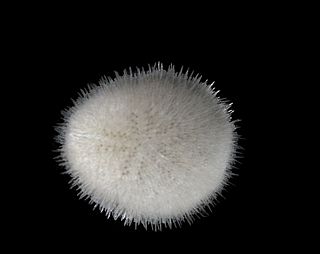
The Neognathostomata are a superorder of sea urchins.

Chariesthes is a genus of longhorn beetles of the subfamily Lamiinae, containing the following species:

Plocoscyphia is an extinct genus of sea sponges belonging to the family Callodictyonidae.

†Zygopleura is an extinct genus of fossil sea snails, marine gastropod molluscs in the family Zygopleuridae.

Coeloptychium is an extinct genus of lychniscosidan hexasterophoran sea sponge which has often been used as an index fossil. Its remains have been found in Cretaceous sediments in Germany, Belgium, France and the UK. Coeloptyhcium is best preserved in Campanian sediments in Germany. The type species, C. agaricoides, was named in 1826.
Sceptrulophora is an order of hexactinellid sponges, commonly known as Glass sponges, characterized by sceptrule spicules, that is, "microscleric monactinal triaxonic spicules that include clavules with terminel umbels or smooth heads." Species of the order Sceptrulophora have existed since the Jurassic period, and still flourish today. While there is ongoing debate about the organization of various taxa in Sceptrulophora, the monophyly of the taxon Sceptrulophora is supported by the presence of sceptrules in most of the extant species, and has recently been further supported by DNA sequencing.

Aphrocallistidae is a family of hexactinellid sponges in the order Sceptrulophora.
















